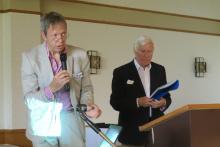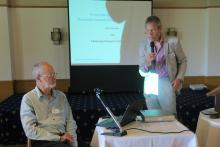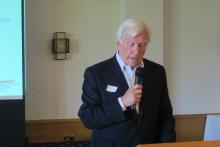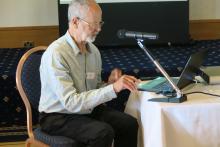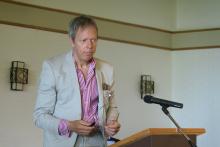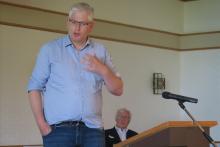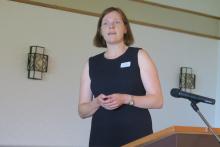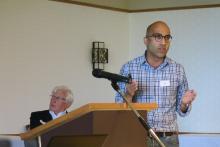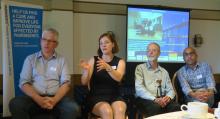Event | First DRIG event

Key Facts
Saturday, June 16, 2018 - 12:00
The first DRIG event took place on June 26th 2018.
About 80 participants were offered a programme ranging from basic research to trial application to the patient. The scientific program was rounded off by a lecture from a very personal perspective by Parkinson patients, a time-lapse journey through the history of the Research Interest Groups and by young scientists who presented their work with great commitment and discussed it with the participants.
A big thank you to everyone contributing to this event and making it a successful start for DRIG.
Report on Event
On Tuesday 26th June, the recently established Dundee Research Interest Group (DRIG) held its first public event: a conference with the title ‘Unveiling some of the Mechanisms which trigger Parkinson’s’.
The event was attended by approximately 80 people either directly, by having Parkinson’s or indirectly (as family member or carer) affected by Parkinson’s and addressed by 5 speakers and 5 PhD Students and postdoctorial researchers.
Prof Ken Bowler introduced the history and successes of the Edinburgh Research Interest Group which was the first one to be set up in the UK and his talk was followed by Marc van Grieken who gave a brief personal account of his diagnosis and the years following this.
The main part of the event however comprised three in depth presentations:
Firstly by Prof Dario Alessi who explained the discovery of specific pathways and mutated genes (LRRK2) that trigger Parkinson’s and by identifying these pathways open up the opportunity to ‘block’ or inhibit the effect of these.
He was followed by Dr Esther Sammler who is both a clinical neurologist consultant but also researches at Dario Alessi’s MRC unit concentrating on inhibiting the mutated gene and who is about to commence on sampling a test the researchers have developed
The final talk was by Dr Mitatul Muqit who studies two further genes PINK1 and Parkin and is setting out a framework for clinicians to increase and translate knowledge and understanding leading to better treatments.
The talks were followed by Q&A sessions and there was also time to talk on an individual basis to the researchers and students.
Event Resources
Below are links to deeper reading and information from the event.

